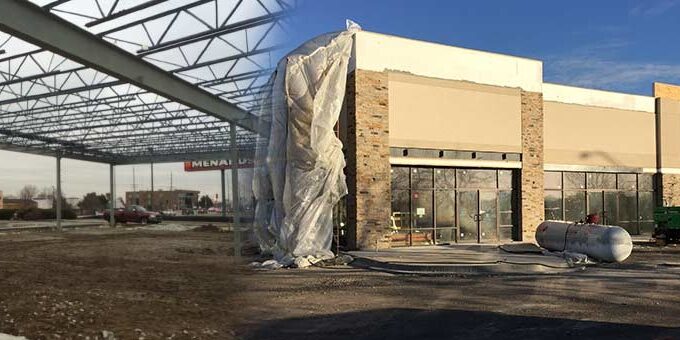Get your project initiated the right way. At Boulders Developers, we understand that comprehensive preparation and planning is crucial to the success of a project. After listening to your intended results, we use the pre-construction phase to increase cost-efficiency, both in terms of scheduling and analyzing material, and to anticipate potential problems so they are avoided. We will map out a quality project with a realistic schedule that will offer no surprises.
Construction and Development are related but not the same
Property, land, and real estate development is a complicated process of combining many operations to turn plans and ideas into reality. It is a business process that includes the finance, construction, refurbishing, or renovation of buildings and land for revenue.
People in the industry call project development the method and capacity of planning, coordinating, organizing, and managing resources to achieve specific goals. From concept to completion, the approach takes a transport upgrade. It has six phases:
Initiation and evaluation
Land and property acquisition
Design and permissions
Construction
Management or disposal
The critical point in property development is the decision on what development type is necessary and the choice to proceed or not. The basis for these judgments is the market analysis and a financial review of the projected progress, including expected limitations, risks, and profitability.
Development is a broader process than construction, which primarily deals with building a tunnel, house, bridge, etc. On the other hand, developers frequently oversee the building project as an element of the overall development. When evaluating a development, it must consider a wide range of characteristics; money can be challenging to come by, purchases and sales might take a long time, and developments can necessitate a lot of administration.
The Six Phases of Development
Initiation and evaluation: This phase determines the project’s purpose and involves the plan to approach the project’s entirety. The project must undergo a feasibility study to inform everyone involved about the details necessary to commence or ascertain why it cannot. It will determine the advantages and the risks involved in the endeavor, especially the cost.
Land and property acquisition: This phase involves acquiring land or property. It is necessary to look for land that suits the project’s purpose. The location must always have significant consideration because it will affect many factors before, during, and after the project’s completion.
Design and permissions: In this stage, designers must submit several concepts. They must gain the approval of everyone involved, especially the investors. The administration must achieve and organize the paperwork needed for the project to continue before proceeding to the next phase to avoid any issues.
Construction: This phase is the construction proper where things begin. It encompasses the various stages of construction, including material acquisition, hiring general contractors, the project timetable, and equipment. It is the actual execution of the project.
Management or disposal: This stage is the management of the entire project and will continue during and after completing the construction phase. It involves how the project will run after the construction and dispose of it after its functional lifespan. It also includes waste disposal of excess materials after the construction finishes.
What Does Construction Mean?
Building construction is any physical activity on the job site that involves the erection of a structure, external finish, cladding, fixture, formwork. It also includes proper service installations like plumbings, electrical wirings, or heavy-duty general access doors for added convenience for maintenance purposes and offloading equipment, materials, machinery, or the like.
Any new building; a modification (adaptive repurpose of an existing Structure) or a significant adjustment of an existing façade; work increasing floor space through adding to the primary framework; addition of a new attachable structure, or substantial change to a current accessory structure; or any operation needing a new curb cut or improved parking.
Development Vs. Construction
In essence, development is an entire process that includes the construction phases. In contrast, construction refers to stages of progress when building a structure or any activity that deals with the actual process of erecting the building, including any modifications to the building’s existing spaces.
Since development is a broad term, many sectors refer to something different from what you mean, so understanding it is essential because it could get tricky when dealing with legalities. You need to consult professionals who know and have experience with the nuances of such details. You surround yourself with qualified experts, and you need their advice to avoid costly misinterpretations.


